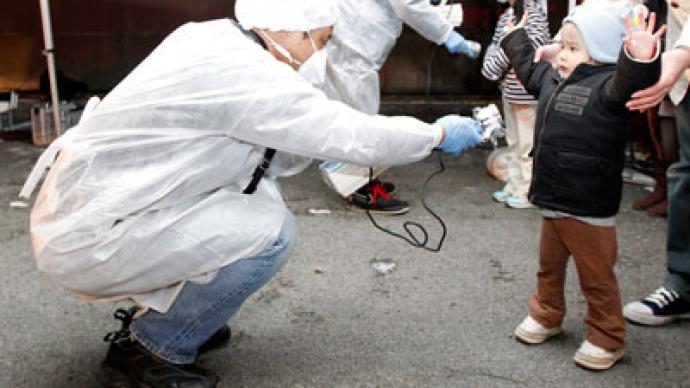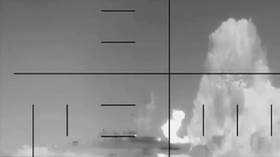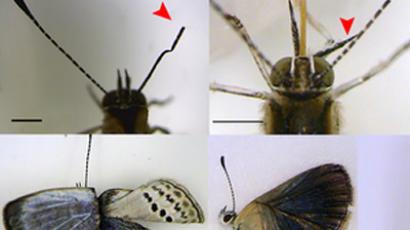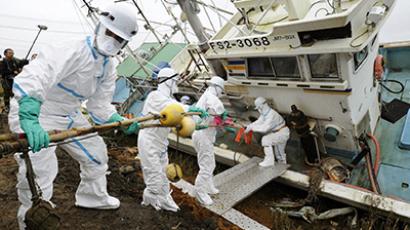Fukushima kids have skyrocketing number of thyroid abnormalities - report

A recent report into the Fukushima Nuclear disaster of 2011 has shown that more than forty percent of children have thyroid abnormalities.
The Tenth Report of the Fukushima Prefecture Health Management Survey, released earlier this week, with data up to January 21, 2013, revealed that 44.2 percent of 94,975 children sampled had thyroid ultrasound abnormalities. The number of abnormalities has also been increasing over time as well as the proportion of children with nodules equal to and larger than 5.1 mm and any size cysts have increased.The report has also revealed that 10 of 186 eligible are suspected of having thyroid cancer as a result of the exposed radiation. On Wednesday, the Fukushima Prefectural Government announced that two people who were teenagers at the time of the Fukushima No. 1 meltdown have been diagnosed with thyroid cancer, bringing the total number of cases officially confirmed by authorities to three. All have undergone surgery and are now recovering. Around 360,000 youths at the time of the disaster have to be repeatedly checked to see if they have been affected by the radiation.In the meantime on Friday, a government-backed researcher claimed that no health effects have been detected in people living in the contaminated area because the radiation level is not high enough. “Since the accident in Fukushima, no health effects from radiation have been observed, although we have heard reports some people fell ill due to stress from living as evacuees and due to worries and fears about radiation,” Kazuo Sakai of Japan's National Institute of Radiological Sciences has said.He went on to argue that people in the area had a radiation exposure of 20 millisieverts or less, while “we know from epidemiological surveys among atomic-bomb victims in Hiroshima and Nagasaki that if exposure to radiation surpasses 100 millisieverts, the risk of cancer will gradually rise.”Sakai says that it will take years to establish a clear link between the nuclear catastrophe and health risks “as empirical knowledge says it takes several years before thyroid cancer is detected after exposure to radiation.”Scientists and activists across the globe are still arguing about the possible long-term effects of the nuclear catastrophe while activists accuse the government of concealing the crucial data from people ever since the disaster.Global environmental watchdog, Greenpeace, has criticized Tokyo of undermining the severity of public health risk.Kazue Suzuki, nuclear campaigner at Greenpeace, who is not a scientist, said Japan should not try to play down the potential dangers."Japan should pour more energy into prevention of diseases including thyroid cancer than talking down the risk of low-level radiation," Kazue Suzuki from Greenpeace has said, warning “if there is no comparative epidemiological data, the government should err on the side of caution and carry out more frequent health checks among residents not only in Fukushima but in other prefectures,” she said.An earthquake in the ocean in March 2011 sent a devastating tsunami to Japan's northeast coast killing around twenty thousand people and sending nuclear reactors on the coast into meltdown.














